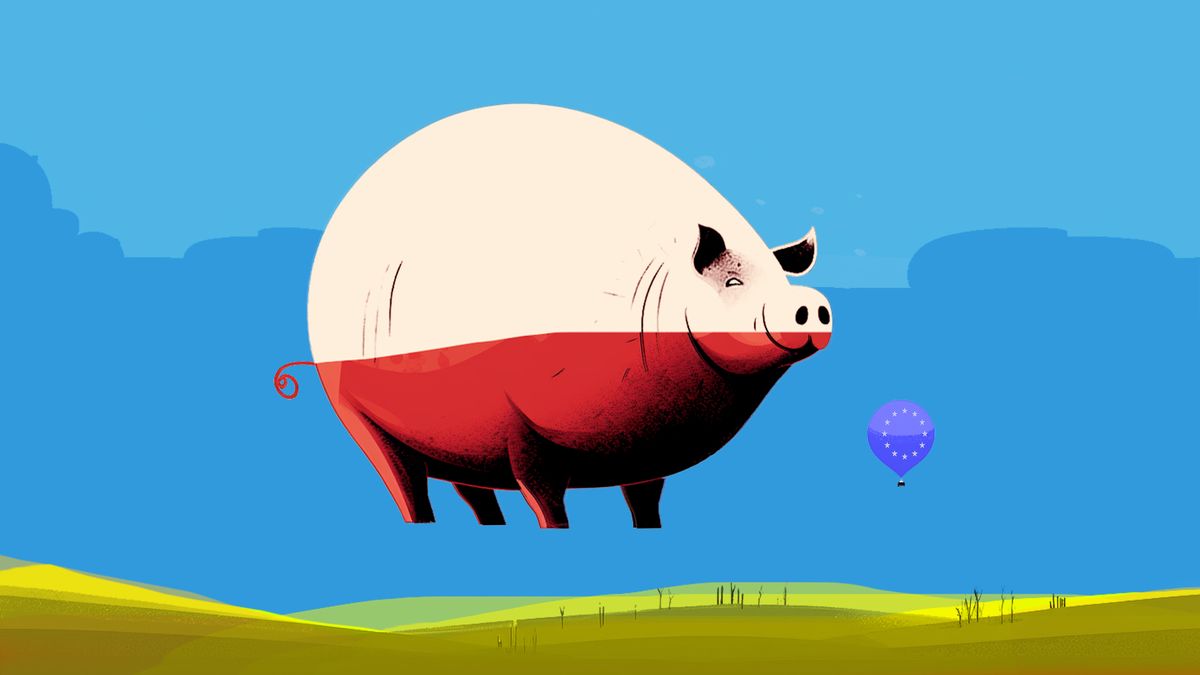Ukrainian grain made Polish cattle farmers rich

Cheap feed from Ukraine allowed Poles in 2022 to halt years of decline in the meat industry. Polish farmers have so increased the purchase of pedigreed young pigs in Germany, Denmark and the Netherlands that piglet prices in Europe have doubled. Therefore, the ban on the import of Ukrainian grain will lead the Polish meat industry to a crisis and hit the pockets of leading European breeding companies, according to LIGA.Business.
In April this year, prices for pedigree piglets from breeding nurseries in Germany exceeded 100 euros per head. This is more than double the price of a year ago. Poles not only buy up piglets all over Europe, but have also become leaders in the export of chicken.
All because Polish farmers got a new resource – Ukrainian wheat, corn and soybeans at low prices – and began to exploit it, increasing their flocks of pigs and developing chicken complexes. This brought results: according to the Polish Ministry of Agriculture and Rural Development, exports of all types of meat and dairy products from the country increased by 37% in 2022.
Cheap Ukrainian grain has increased the profitability of Polish meat to such an extent that the Polish meat business has carved out European markets for itself. Poland is now a leader in this industry in Europe.
In 2022, prices for Ukrainian grain for export, including to Poland, were 40% lower than the global average for wheat and 30% lower for corn. This difference became the resource that stimulated the development of the meat sector of agribusiness.
The war caused a decline in both cattle (minus 0.3 million heads) and pigs (minus 0.4 million heads) in Ukraine. According to the Meat Industry Association, the shortage of meat in Ukraine has increased to 30% of annual consumption due to a lack of supply. Currently, pork in Ukraine is almost one-third more expensive than in Poland: in Poland, the average price of pork is UAH 150, while in Ukraine it is UAH 200.
Currently, four crops-wheat, corn, rapeseed, and sunflower-are banned from export to Bulgaria, Hungary, Poland, Romania, and Slovakia until June 5, 2023. This ban is likely to be extended, despite significant benefits for certain segments of the Polish agricultural market.
Regardless of whether the European Commission lifts or extends the ban on exports of Ukrainian agricultural raw materials on June 5, Ukraine needs to consistently develop its livestock industry, and Poland’s experience clearly demonstrates the prospects of this path. This will not only reduce meat imports from abroad, but also develop its exports.
In fact, we are talking about replacing grain exports with meat exports. In this case, the added value from the created production chain will strengthen Ukrainian farmers, not foreign farmers.
Another aspect is the reduction of costs and risks in the course of supplying abroad. According to experts, meat exports require ten times less logistics capacity than grain exports.
Read also
Ukrainian farmers curb soybean sales
Argentine beef exporters discuss how to deal with restrictions imposed by China
Lag in Ukrainian grain exports from last year’s figures reached 7 mln tons
Black Sea & Danube region: How agri business can generate money in 2026
Import of repack to the EU decreased by 39% in river volumes starting from MY 2025/26
Write to us
Our manager will contact you soon



